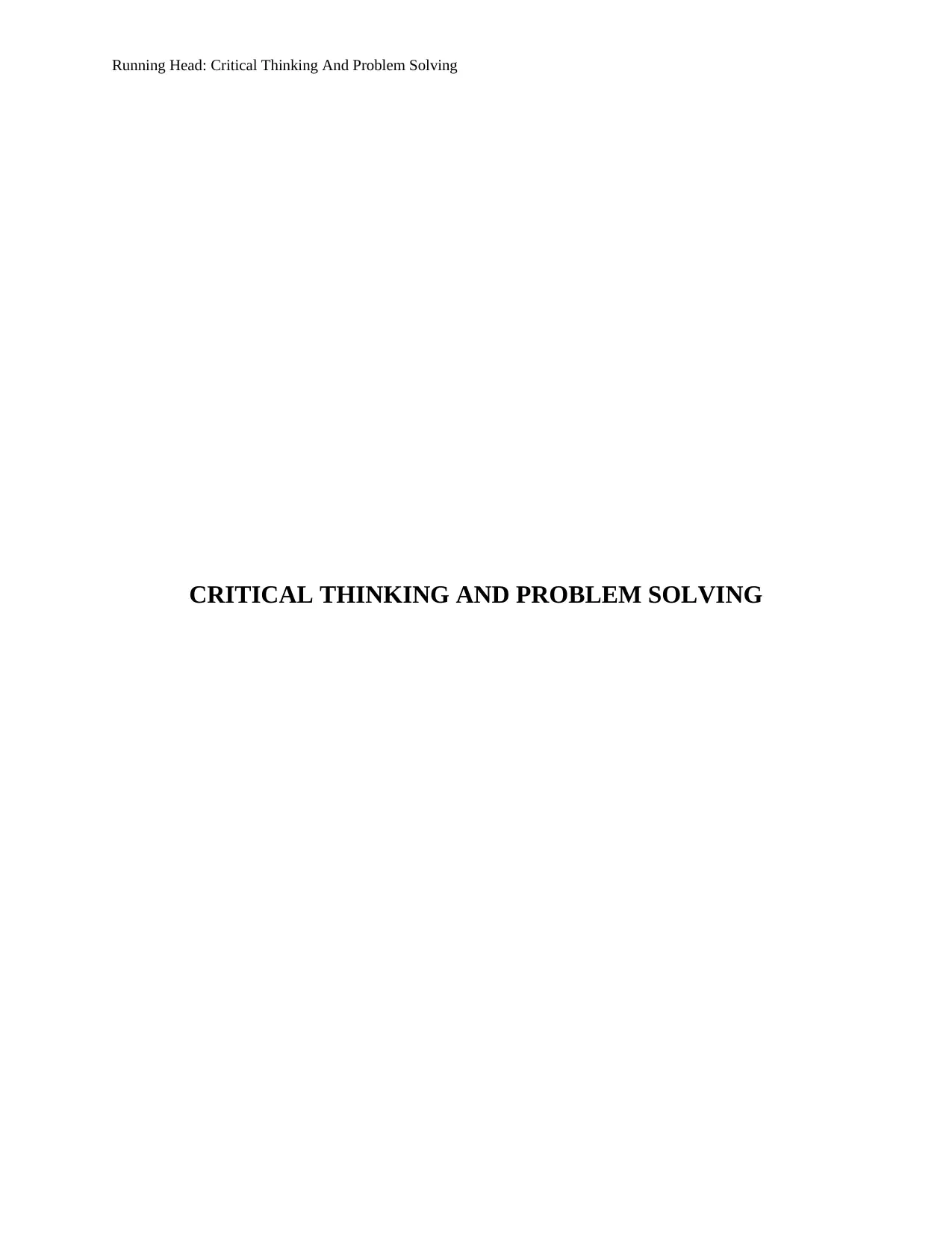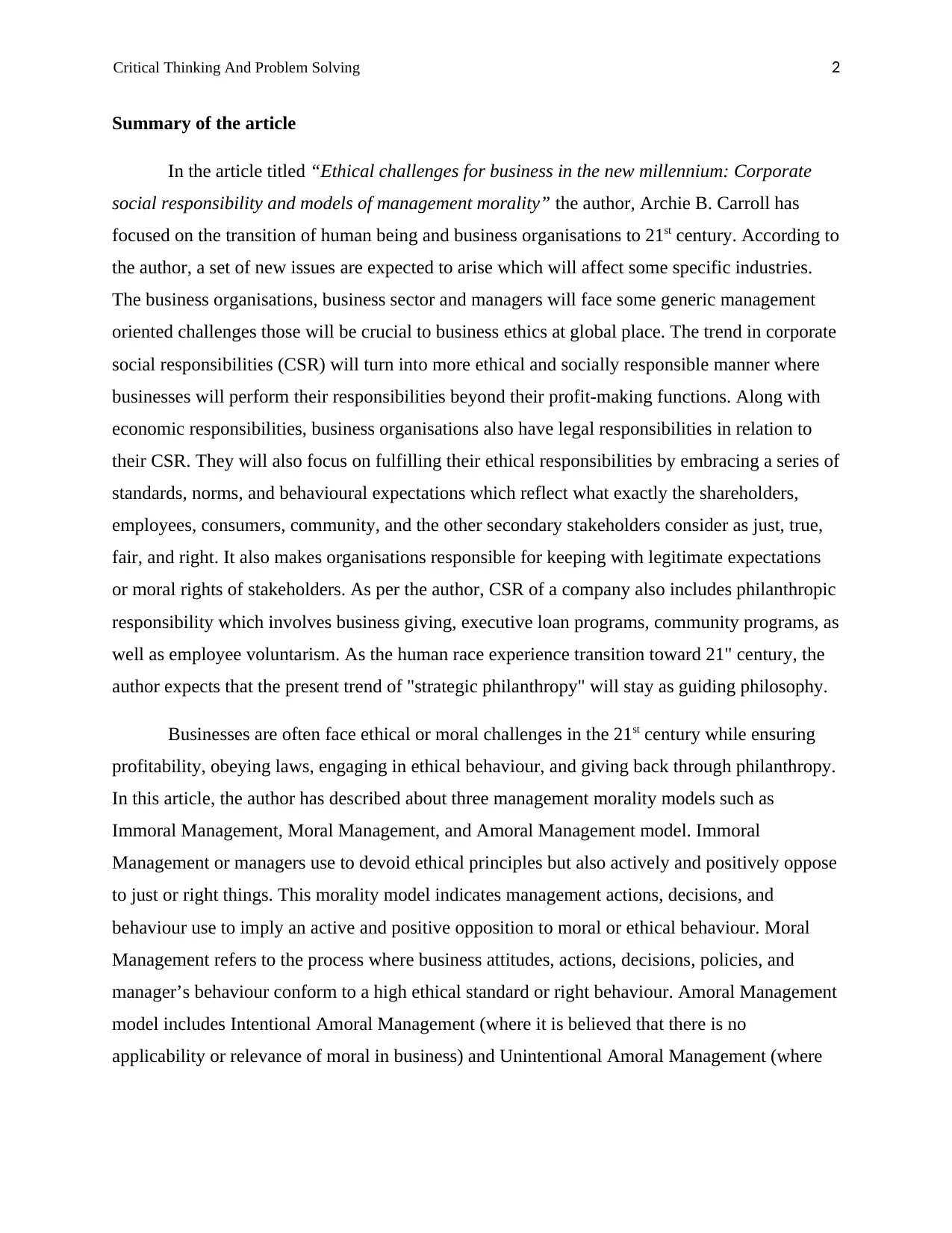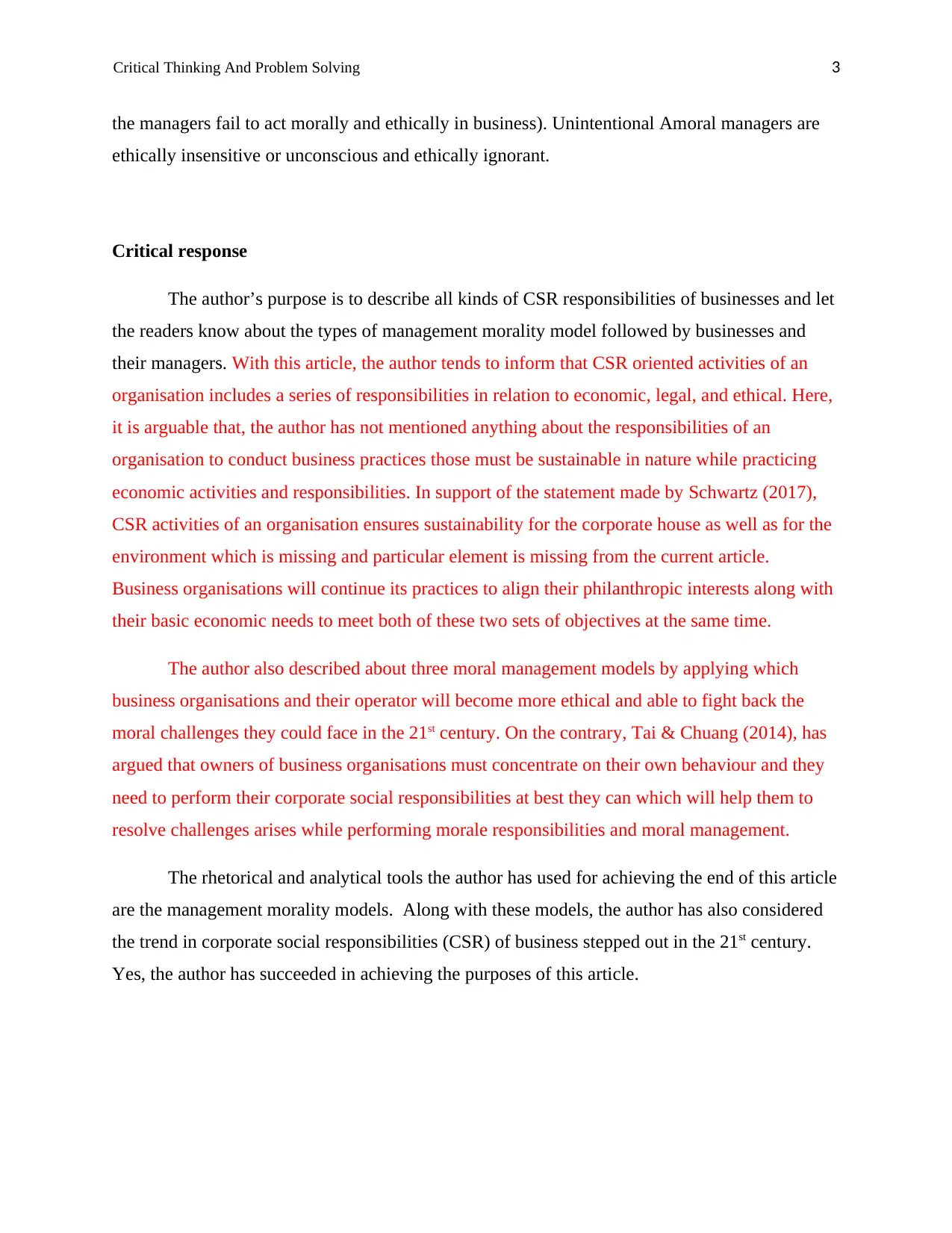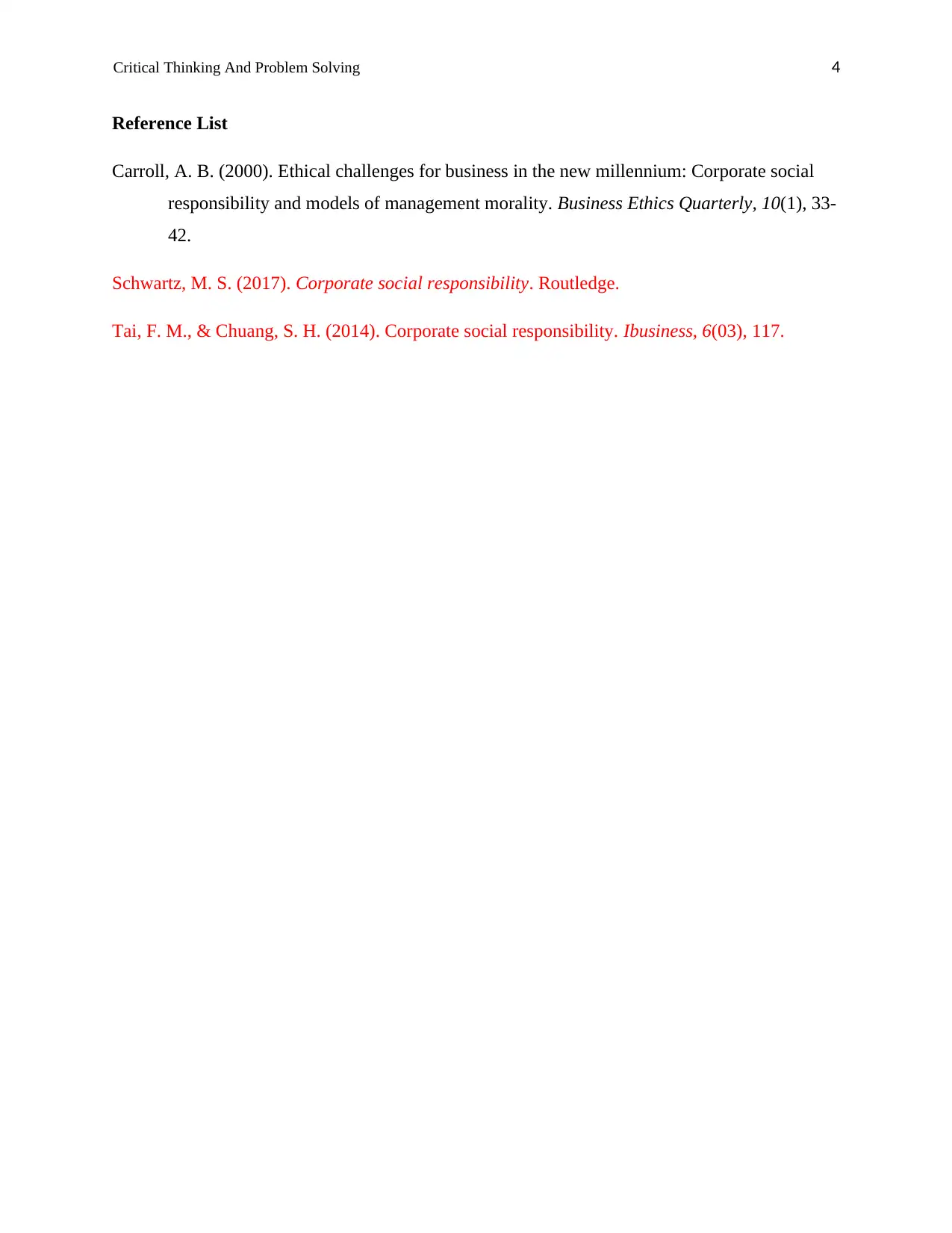Critical Thinking and Problem Solving Report: CSR, Management Morality
VerifiedAdded on 2019/10/12
|4
|885
|461
Report
AI Summary
This report provides a comprehensive summary and critical analysis of Archie B. Carroll's article, "Ethical challenges for business in the new millennium: Corporate social responsibility and models of management morality." The report focuses on the transition of businesses to the 21st century, highlighting the emergence of new ethical challenges and the increasing importance of corporate social responsibility (CSR). It details the shift towards more ethical and socially responsible business practices, encompassing economic, legal, ethical, and philanthropic responsibilities. The report also discusses Carroll's three management morality models: Immoral, Moral, and Amoral Management, and evaluates the author's arguments. The analysis includes a critique of the article, noting the absence of discussion on sustainable business practices and referencing supporting perspectives on CSR. This report aims to inform readers about the different CSR responsibilities of businesses and the different types of management morality models followed by businesses and their managers to combat moral challenges in the 21st century.
1 out of 4










![[object Object]](/_next/static/media/star-bottom.7253800d.svg)